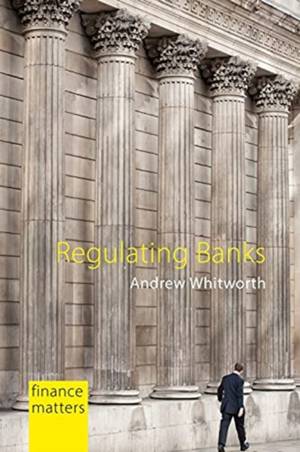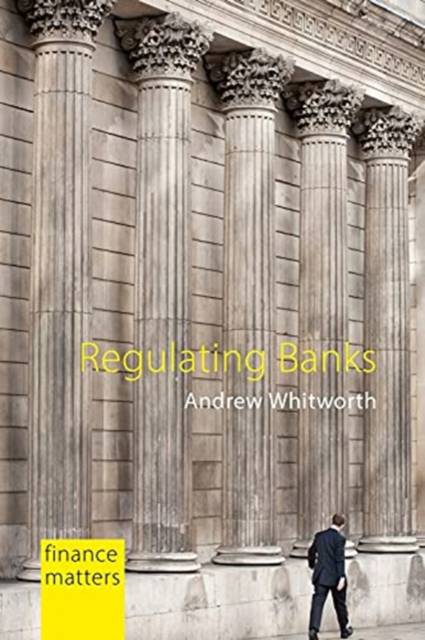
En raison d'une grêve chez bpost, votre commande pourrait être retardée. Vous avez besoin d’un livre rapidement ? Nos magasins vous accueillent à bras ouverts !
- Retrait gratuit dans votre magasin Club
- 7.000.000 titres dans notre catalogue
- Payer en toute sécurité
- Toujours un magasin près de chez vous
En raison de la grêve chez bpost, votre commande pourrait être retardée. Vous avez besoin d’un livre rapidement ? Nos magasins vous accueillent à bras ouverts !
- Retrait gratuit dans votre magasin Club
- 7.000.0000 titres dans notre catalogue
- Payer en toute sécurité
- Toujours un magasin près de chez vous
Description
Banks have been at the heart of economic activity for centuries, but since the 2008 financial crisis scrutiny of their activities and regulation of their actions has become the focus of fervent academic, policy and political activity. This focus takes for granted the existence and nature of banks.
In Regulating Banks, Andrew Whitworth looks one stage deeper to question what a bank really is, and what the implications of that are. He argues that the institutional form of a bank represents the political compromise of a specific time and place - and can therefore change. This has implications for financial stability. Far from creating stability, he argues, the regulatory impulse of policy-makers inevitably leads to greater financial instability. Whitworth examines the postwar period of UK banking to show how regulation influences the nature of banks as much as their behaviour. Regulation, by changing the nature of what is regulated, encourages banks and other actors over time to alter their behaviour, which leads to future boom and bust cycles. These cycles then require further regulation to rein in the disruption their new pattern of behaviour inevitably instigates. Regulating Banks reveals the cyclical nature of banking regulation, the inherent mismatch between political impulses and market reactions, and the price banks, banking and society pay for such instability.Spécifications
Parties prenantes
- Auteur(s) :
- Editeur:
Contenu
- Nombre de pages :
- 208
- Langue:
- Anglais
- Collection :
Caractéristiques
- EAN:
- 9781788214049
- Date de parution :
- 10-12-21
- Format:
- Livre relié
- Format numérique:
- Genaaid
- Dimensions :
- 160 mm x 236 mm
- Poids :
- 476 g

Les avis
Nous publions uniquement les avis qui respectent les conditions requises. Consultez nos conditions pour les avis.






